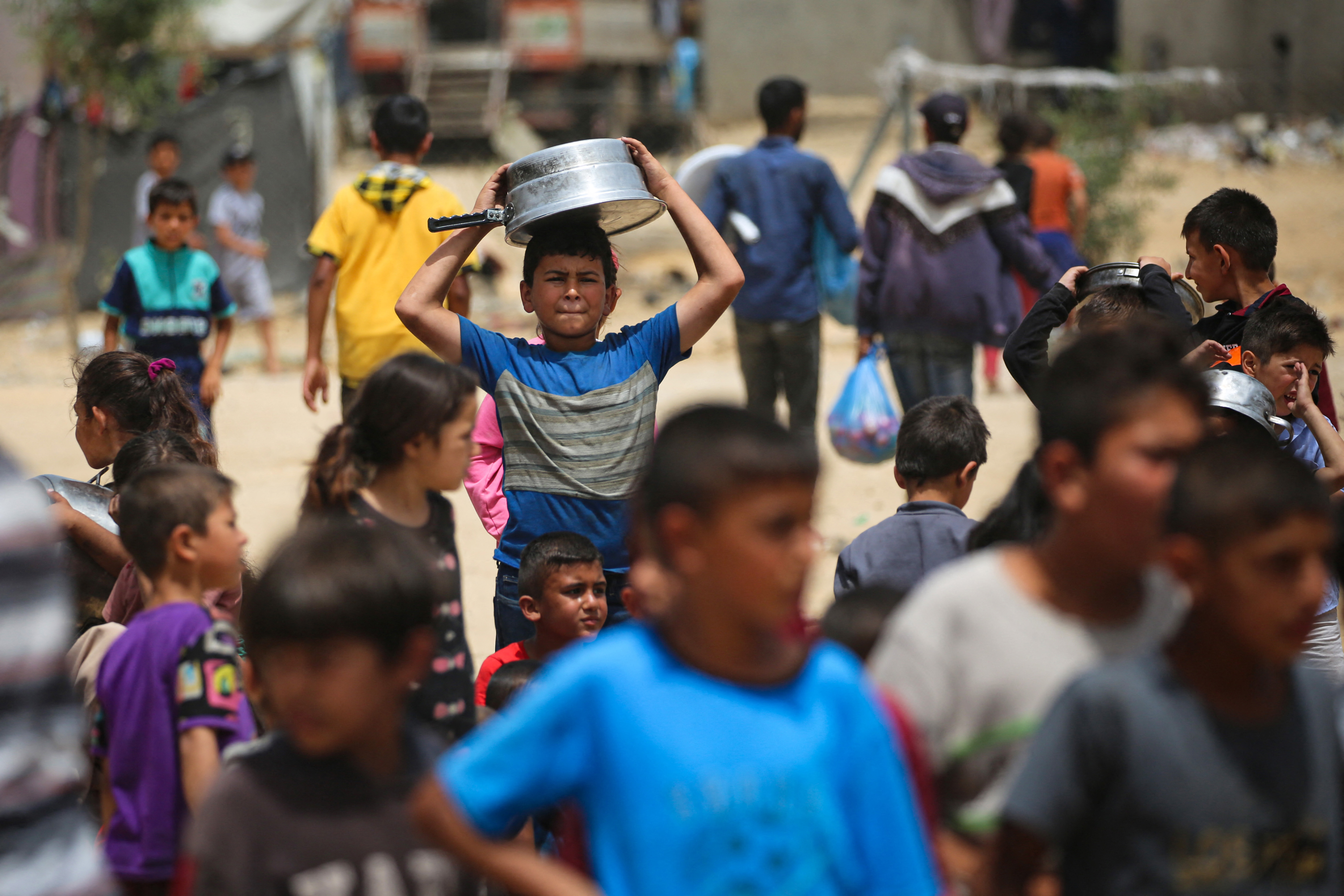
Israel’s unrelenting attacks in Gaza have forced the United Nations Relief and Works Agency for Palestine Refugees in the Near East, or UNRWA, to suspend food distribution in Rafah, as other agencies warned of a lack of urgent medical supplies.
In a post on X (formerly Twitter) on May 22, the UNRWA blamed the ongoing military operation in eastern Rafah for the insecurity there, the lack of supplies, and making its distribution center and warehouse “inaccessible” amid the continued displacement of people from the city.
“The Israeli ground offensive continues to expand, particularly in the southern regions of Gaza City and eastern Rafah, notably around the Karem Abu Salem (Kerem Shalom) and Rafah Crossings,” the UNRWA said in its latest situation report.
The United Nations Relief and Works Agency for Palestine Refugees in the Near East noted that most UNRWA shelters in Rafah “have been vacated, with internally displaced people moving to Khan Younis and Deir Al Balah”
“Families that have been already displaced several times are on the move again due to military operations and Israeli evacuation orders. As of 19 May 2024, the estimated number of people displaced from Rafah amounts to nearly 815,000 people since 6 May, with a further 100,000 people displaced in northern Gaza,” it added.
ALSO READ: WHO head urges Israel to lift restrictions on aid into Gaza
It noted that most UNRWA shelters in Rafah “have been vacated, with internally displaced people moving to Khan Younis and Deir Al Balah”.
The report said overall displacement numbers correlate with UNRWA registration figures in the new locations. For example, nearly 150,000 people have registered for essential services for UNRWA in Khan Younis alone in the last 10 days, according to the UNRWA.
Israel’s Coordination of Government Activities in the Territories (COGAT), which implements the government's civilian policy within the territories of Judea and Samaria and also regarding the Gaza Strip, contested the UNRWA’s claims.
COGAT said on its X account that other humanitarian NGOs and the private sector “have been bringing in food trucks and distributing in Rafah and the rest of Gaza”.

It also claimed that 14 trucks of aid were transferred into Gaza and over 569 metric tons of humanitarian assistance has been delivered to Gaza for further distribution by humanitarian partners.
“The United States, United Kingdom, United Arab Emirates, European Union, and many other partners have donated this humanitarian assistance,” according to the COGAT website.
Food supply is not the only issue plaguing Gaza. World Health Organization Director-General Tedros Adhanom Ghebreyesus appealed to Israel on May 21 to lift the blockade on medical supplies into Gaza, saying approximately 700 seriously ill patients were stuck in a “war zone”.
Crossings from Egypt into Gaza have remained closed for two weeks, he noted, cutting off the primary pipeline for emergency health supplies into Gaza.
ALSO READ: Israel razes parts of Gaza's Jabalia, hits Rafah with airstrikes
Tedros, who was speaking at a press briefing in Geneva, described the situation in Gaza as "beyond catastrophic".
He added that intense hostilities near Gaza's hospitals have compromised their ability to provide medical care and made it harder for patients to reach.
Elsewhere, more than 1,400 academics and administrators from higher education institutions across Israel have signed a petition urging the Israeli government “to end its war on Gaza and secure the return of captives held in the Palestinian enclave”, Al Jazeera reported on May 22.
Al Jazeera said the petition — titled “A Call on the Israeli Government to End the War and Ensure the Return of the Hostages” — underscored that ending the conflict and returning the hostages were “moral imperatives that align with Israel’s interests”.
READ MORE: ICC prosecutor seeks arrest warrants for Israeli, Hamas leaders
Further, the signatories added that while they supported Israel’s right to self-defense, the initial purpose had been “exhausted” and doubted the government’s right to wage war without a realistic end or one aimed at the political survival of the leadership, the report said.


